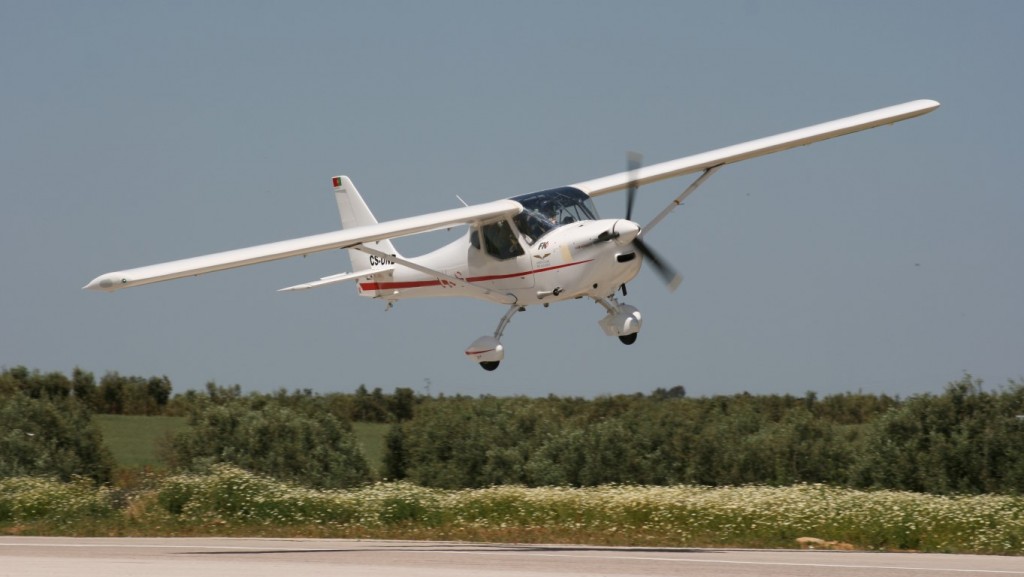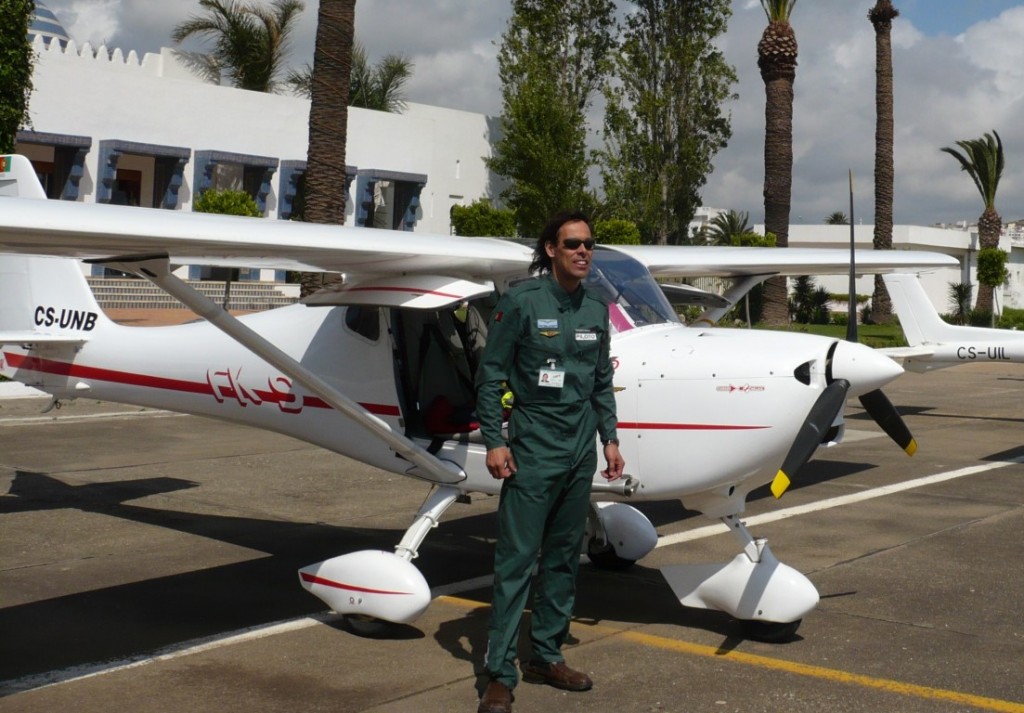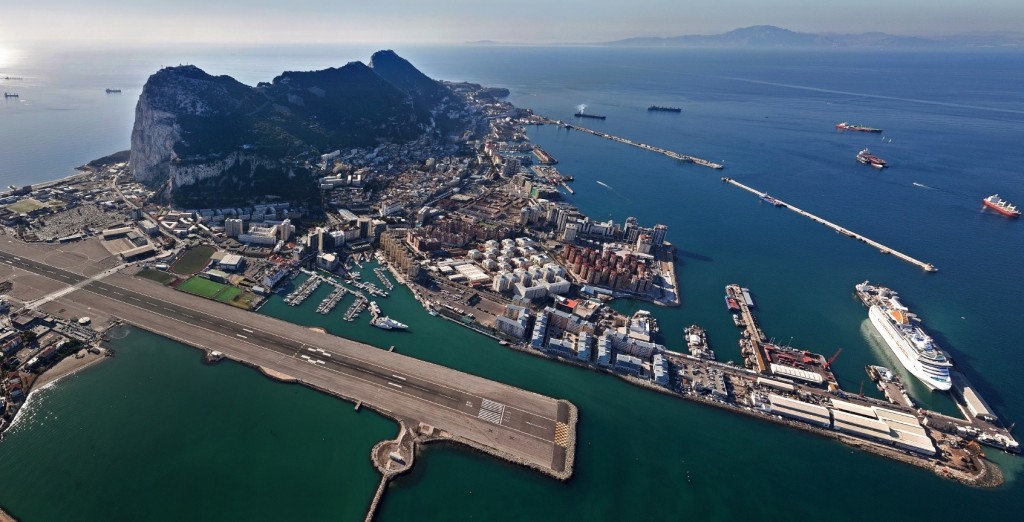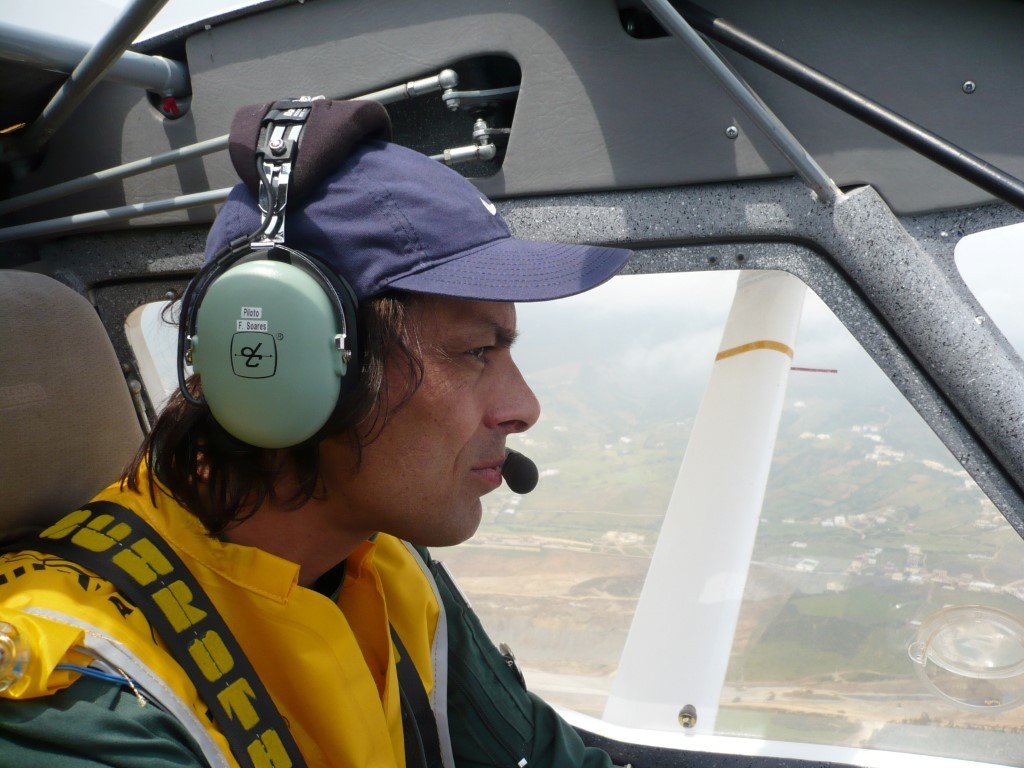 They helped monitor forest fires, carry out aerial surveys of the Algarve coast, to gauge the risk of falling cliffs, and even secured an air bridge between Gibraltar and Faro, in the 70s/80s, to make life (much) easier for the Portuguese who were working there at the time.
They helped monitor forest fires, carry out aerial surveys of the Algarve coast, to gauge the risk of falling cliffs, and even secured an air bridge between Gibraltar and Faro, in the 70s/80s, to make life (much) easier for the Portuguese who were working there at the time.
The history of Aeroclube do Algarve is rich and old, as well as the willingness of its members to support different causes on a voluntary basis, but the association created in 1959 felt the weight of the crisis and was in danger of disappearing.
The association's future is still uncertain, but there is already some light at the end of the tunnel, thanks to a group of Aeroclube members who mobilized to try to avoid the end of the collectivity. Last Friday, they managed to elect a new board, which will now work to "revitalize the club".
Among them is Francisco Conde Soares, one of the many people who learned to fly at the club's aviation school, who is not satisfied with the idea of the club closing its doors and shared with the Sul Informação the history and the current difficult situation of the Aeroclube.
“From the moment the financial crisis set in, the club was very affected. There were pilots who left, some because they emigrated, others because they were no longer able to pay for the operation», explained Francisco Soares. Despite having access to the association's two-seater light aircraft, under privileged conditions, club members still have to “pay an operating cost per hour”, which is no longer accessible for everyone's purse.
This does not mean that membership in the club and flying is an activity reserved for wealthy people. «The pilot members of the Aeroclube are people with normal resources and professions, who took the pattern and have a taste for flying. This is a very particular and very strong passion, it is one of the oldest dreams of humanity», illustrated Francisco Soares, professor and current director of the Pinheiro e Rosa Schools Group.

This difficulty, more linked to the economy, was joined by others. “Here a few years ago, a tornado hit the airport of Faro destroyed one of the planes, a situation that ended up demobilizing some of the pilots. Subsequently, the management at the time became uninterested in continuing, which led to the Aeroclube being without activity for almost two years», he revealed.
«A group of partners, including myself, in view of the scenario of the Aeroclube being extinguished, decided to start mobilizing other pilots and some entities, such as the Chamber of Faro, to try to save the club», said Francisco Soares. “I think the conditions are in place to not let the club down. I hope that the members and the community will help to maintain an association that has been a reference in the city and in the region», he wished.
For now, there are guarantees from the Chamber of Support «in the same line as other sports associations» and the opening of the director of the Airport of Faro to continue letting the Aeroclube use that airport infrastructure and keep its aircraft there.
The main "trump card" available to the community based in Faro it's their story, in which community service has always been a point of honor. “We can go ten years without saving a life. But when we do, we justify our existence forever», he considered.
The Aeroclube was born in the late 50s, as a result of the desire of «a group of men who had a passion for flying». Once the community was created, its members began to make the first flights «from the land next to the Ria Formosa where today the Airport of Faro».
These pilots from an early age that started to show vein to help others. «We have the status of public utility and we have been developing, over time, humanitarian services, with exclusively voluntary work by members of the Aeroclube».

In the 70s and 80s, the Aeroclube do Algarve was the protagonist of an air bridge created between Gibraltar and Faro, which benefited the Portuguese who worked in this British enclave on the edge of the Mediterranean Sea, today with about 30 inhabitants. At the time, the border between Spain and the British enclave was closed, which determined that entry and exit from the territory could only be done by sea or air.
«At that time, there were many Portuguese in Gibraltar, working in civil construction, as that territory was undergoing a great deal of development. But, as the borders were closed, they could not go to Spain», said Francisco Soares, reproducing the story lived by former pilots, members of the club.
The solution was to take the journey along the most winding path. “They had to take a boat to Tangier, from there they took another to Algeciras. Then they took a bus to Seville, another to Huelva and a third to Ayamonte. Often, they arrived there at a time when there were no boats to Portugal, having to sleep on benches in the garden, to catch the morning boat, the train to Faro and, from there, transport to their lands», he described. This could take "three days".
In this way, it was particularly difficult for these Portuguese to come home, particularly during festive seasons, such as Christmas and Easter, and in summer.
«The honorary consul of Portugal in Gibraltar at the time was a member of the Aeroclube do Algarve and began to be approached by emigrants, to find out about the possibility of the club transporting them. Thus, all members were made [the statutes determine that only members can fly on Aeroclube planes] and started to make the trip in an hour and 40 minutes», he said.
“At the time, we had a plane with six seats and another with four. There were days when the same pilot made more than one trip between Gibraltar and Faro», he added. And, as the Portuguese always manage to make the best of every situation, the planes left from Faro "Only with enough gasoline to get there and they attested in Gibraltar, where fuel was half the price."

This is just one example, joined by others. For many years, the Aeroculbe do Algarve carried out fire surveillance, in collaboration with the National Civil Protection Authority. “We flew with a GPS device on the plane, which transmitted in real time whatever we detected. I personally flew to Castro Verde», he recalled.
Francisco Soares also volunteered to accompany technicians from ARH Algarve in the work of monitoring the coast and the Ria Formosa. In the first case, the flights were intended to assess coastal erosion and the advance of the tides, making it possible to anticipate the fall of cliffs. The circular flights over the bars of the Ria Formosa were aimed at seeing where there were sandbanks, to facilitate the work of de-silting. On these flights, the view would be this one, which Francisco Soares captured on video.
In 2003, he added, it was also this association, in collaboration with the Chamber of Faro, which provided flight baptisms to about 100 residents of Faro. «It was on City Day. The measure was aimed at elderly and needy children. We spent the whole day flying, from sunrise to sunset. The pilots took turns constantly and only had time to eat a sandwich at lunch», recalled, dearly, the member of the Aeroclube de Faro.
The future is not certain, but there are many ideas that the group of members proposing to revitalize the club wants to implement. One of them involves a renewed investment in the aviation school, looking not only at the local market, but also beyond borders.
“In many parts of Europe, you can't fly for a good part of the year, due to weather conditions. Here we have an excellent climate and excellent conditions for training, at any time of year. During the low season, we even have the advantage that the airport is less overloaded», he illustrated.


















Comments